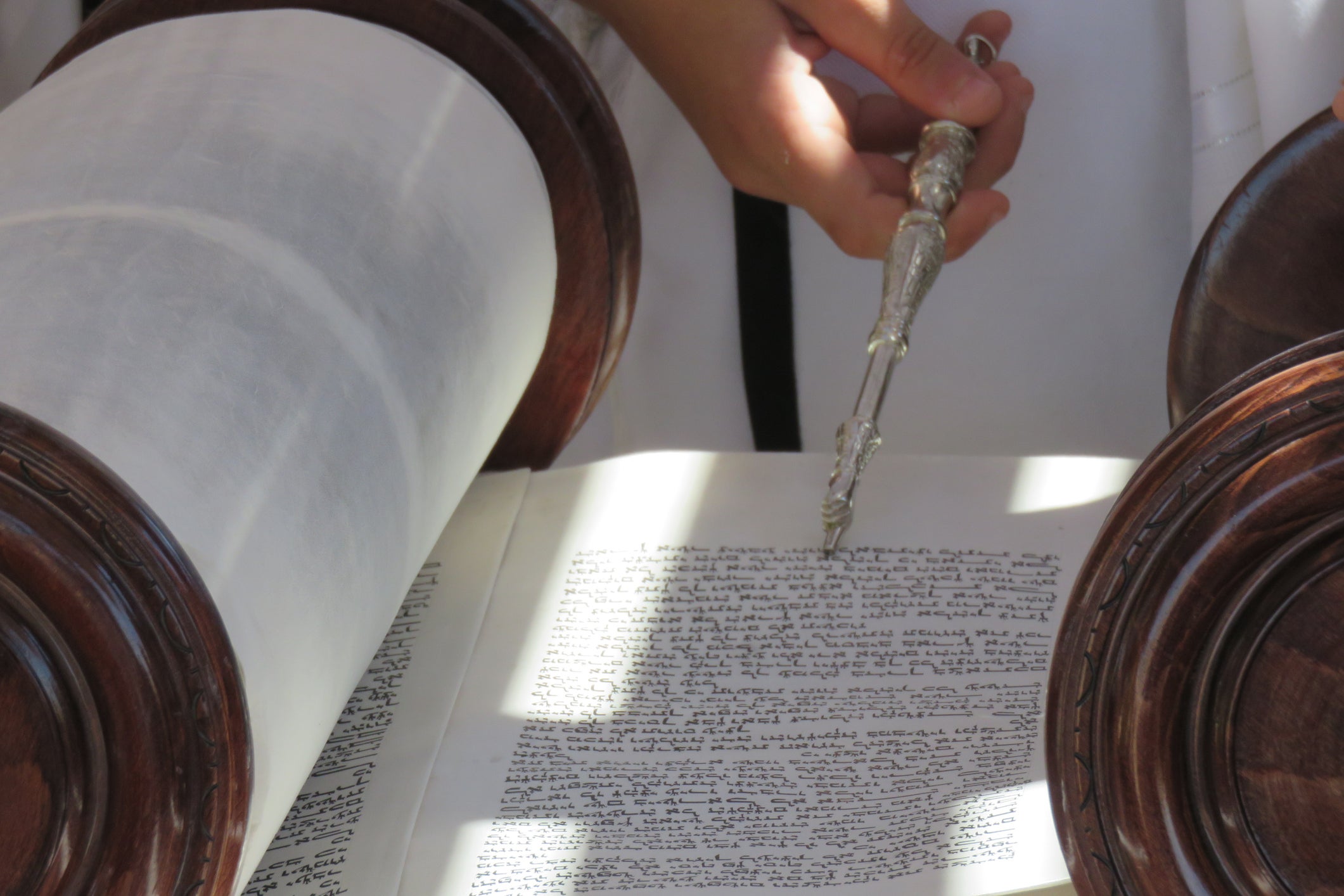Simchat Torah: The Jewish holiday that celebrates the completion of Torah readings
Here is everything you need to know about Simchat Torah

Simchat Torah, Hebrew for “Rejoicing of the Torah” is a Jewish religious holiday that commemorates the completion of the yearly cycle of Torah reading.
The Torah is a central part of Judaism and to mark this significance of the scripture, Jewish communities around the world celebrate the day with many different rituals.
During this time, Rabbis remove Torah scrolls from their ark, carry them over through the congregation and read certain passages to close the cycle and welcome the new.
The holiday lasts around one to two days with some Orthodox communities observing it on the following day.
Here is everything you need to know about Simchat Torah:
What is Simchat Torah?
The religious festival first originated in the medieval period and marks the conclusion of one Torah reading and the beginning of another cycle.
Although the holiday does not appear in the Bible or the Talmud, it is still a big part of Jewish tradition.
During the festival, Jews celebrate another year of reading and studying the Torah: the first five books of the Bible—Genesis, Exodus, Leviticus, Numbers and Deuteronomy.
While readings are taking place, people circle three or even seven times dancing around the bimah (the reading desk). This dance is known as the hakafot in Hebrew and simply translates to “circles”.
The hakafot is one of the highlights in the Jewish calendar and takes place both in the evening and the morning of Simchat Torah.
In some communities, people see the dance as if they have become the “feet” of the scrolls. The scrolls are carried, allowing it to be a part of the dance and celebrations.
What is the proper greeting for this celebration?
The greeting for this Jewish holiday is “Chag Sameach,” which means “Happy holiday”.
What kind of foods are eaten on Simchat Torah?
During this religious holiday, the one ingredient that is used the most is cabbage and this is due to its due its cylindrical shape.
Communities gather to make a popular dish known as stuffed cabbage as it symbolises the shape of Torah scrolls.
Another dish that is made during this time is blintzes, which also have a cylindrical shape.
Chaya Rappoport, Jewish Food Society’s Culinary Manager in the US says she grew up looking forward to her grandmother’s stuffed cabbage “which she stuffed with wild rice and braised in a savoury sweet tomato sauce.”
“While that’s pretty standard Simchat Torah fare for Ashkenazi Jews, the tradition looks slightly different in each family; this year on the Jewish Food Society archive, we’re sharing a recipe from a Romanian Holocaust survivor for kindl, a walnut stuffed cookie that she made every Simchat Torah,” She adds.
Rappoport says meanwhile, in Sephardi or Mizrahi communities, “you might find stuffed squash, eggplant, quince or even kubbeh and bourekas. In classic Jewish fashion, this tradition has multiple interpretations, to which I say: the more the merrier.”
When is it?
This year, Simchat Torah will be taking place on the evening of Saturday 7 October till Sunday 8 October.
Simchat Torah is observed on the 22nd to 23rd of Tishrei (Tishrei is the first month of the Jewish year).
Upcoming dates:
Jewish Year 5785: Sunset 24 October 2024 – Nightfall 24 October 2024
Jewish Year 5786: Sunset 14 October 2025 – Nightfall 15 October 2025
Jewish Year 5787: Sunset 3 October 2026 – Nightfall 4 October 4 2026
Jewish Year 5788: Sunset 23 October 2027 – Nightfall 24 October 24 2027
Jewish Year 5789: Sunset 12 October 2028 – Nightfall 13 October 13 2028
Jewish Year 5790: Sunset 1 October 2029 – Nightfall 2 October 2029
Jewish Year 5791: Sunset 19 October 2030 – Nightfall 20 October 2030
Subscribe to Independent Premium to bookmark this article
Want to bookmark your favourite articles and stories to read or reference later? Start your Independent Premium subscription today.

Join our commenting forum
Join thought-provoking conversations, follow other Independent readers and see their replies